- Home
- Antonia Fraser
My History: A Memoir of Growing Up Page 4
My History: A Memoir of Growing Up Read online
Page 4
Kings Norton gave Thomas and myself our first experience of being a candidate’s show-family. In order to demonstrate, by practical example, our mother’s egalitarian views on education, we were imported to Birmingham, and sent for a week to the local state school. Unfortunately, Elizabeth, with all her enthusiasm for state education, had little actual experience of it at this level; she failed to give us any milk money. The class was enormous, forty children perhaps; as newcomers, and temporary newcomers at that, we were directed to the back of the class. No blithe scrapping for red or yellow mugs here: as I remember it, we sat rather gloomily during the break, milkless and bewildered.
Certainly I never had any luck being a show-person. My mother gave up the Kings Norton constituency and never actually fought an election there. In 1950, however, she took on the Oxford parliamentary seat which my father had fought and lost in 1945. It seems incredible to me now but admirable, to be admired but also in the Latin sense of something to be wondered at, that Elizabeth did not allow the existence of eight children, the youngest being two and a half, to deter her. As it was, her energy, the brightness of her personality and the passion of her belief in Socialism were all undimmed, although she had borne the last five children in seven years—all this in the Spartan conditions of wartime Oxford and post-war austerity Britain. At the same time I was imbued—by both my parents—with a sense that idealism was an essential part of political life, but that it was certainly not irreconcilable with political ambition, nor should it be; the two things could coexist with honour. This was a theme which always hovered at the back of my mind in considering both national and international politics, both in the present and the past. I never fully explored it, however, until I wrote Perilous Question: The Drama of the Great Reform Bill 1832, many years later, at which point this combination of ambition and idealism redolent of my childhood turned out to be the central theme.
At the time I did not admire these things, let alone wonder at them. I simply took them for granted, just as I took for granted my mother’s decision to travel by bus wherever possible as being a fact of life, if not a specially pleasant one. I was seventeen in the February of 1950 and had already passed Oxford entrance, where I was destined to go in October. Bus travel was necessary because my mother had moved the family from Oxford to Hampstead Garden Suburb a few years earlier in order to see more of my father; he had been created Lord Pakenham in 1946 to bolster up the Labour Party in the House of Lords, and was by now a minister. I hastily agreed to go down to Oxford to help my mother in her campaign, not because I was politically sophisticated but for the very different reason that I hoped to drop in on some undergraduates along the way. Not any undergraduates, mind you, but the sort I had read about in Brideshead Revisited, the novel by my parents’ friend Evelyn Waugh published five years earlier.
I was even delighted to sit on the platform at the end of the row because in the romantic haze in which I chose to live, the Marquis of Vidal, saturnine hero of Georgette Heyer’s great novel Devil’s Cub, might see me sitting there and…after that I was vague, and even vaguer about the circumstances in which the Marquis of Vidal or his like would attend a Labour Party meeting in Oxford in February.
My mother duly spoke well, clearly and cogently as she was wont to do. She wore a little red hat, chic on her black hair, conveying either a political message or a fashionable one according to taste. Then questions came.
“Lady Pakenham,” shouted one man from the floor—as Elizabeth had now become since Frank’s ennoblement. “Lady Pakenham,” he repeated, and I did not miss the implied sneer. “How can you put yourself forward for Parliament and neglect your eight children?”
Quick as a flash, my mother turned towards me, sitting dreaming of the Marquis of Vidal at the end of the row. “Stand up, Antonia.”
I came out of my dreamworld and struggled to my feet; I was wearing uncomfortable dark brown suede court shoes which had seen better days but I thought showed my legs in a flattering light. I was four or five inches taller than my mother and everything about me was round: my body, but also my round face, with my round healthy-looking pink cheeks.
“Does she look neglected?” asked Elizabeth. There was a roar of laughter…
Ever since that awful day when romantic dreams gave way to mortifying reality, I have felt a natural cross-party sympathy for the children of politicians who find themselves in the unwelcome limelight. It is not, after all, a situation that they have chosen and besides, who has ever really measured up to the limelight? Having said that, I have to add in all honesty that I took to the life of canvassing and delivering addresses with zest. I didn’t want the palm but I did enjoy the race. There is something about canvassing that appeals to anyone who is inquisitive: a licence to poke about, ring doorbells and ask impertinent questions, all in a noble cause.
In those days, the man of the house would be mainly absent at work, since I was a daylight canvasser. There were two groups I would encounter: women, either very old or very young, clutching babies—and dogs. The latter, invariably hungry, black and enormous as it seemed to me, added the spice of danger to the occupation. Such dogs were glimpsed through letter boxes, seen ravening away in windows or, most terrifying of all, encountered close at hand in a tiny yard or garden from which they might easily escape.
“Good dog. Good Labour dog,” one would say nervously. Did the growls mean agreement or was this, horrifying thought, a Tory dog? The best solution was to stick the printed circular through the letter box and run for it. The wild barking which ensued once again might be endorsement or violent indignation.
The conversations with actual human beings were on the other hand invariably polite. In all my canvassing, I never encountered hostility (except from the dogs). The extreme politeness of people in face of this unwarranted intrusion by someone at least half their age, is exemplified by the following exchange:
“Good morning. I have called to ask you to support Mr. Frank Pakenham, the Labour candidate”—proudly—“I am his daughter Antonia.”
“Oh yes, a very nice gentleman. Aren’t you a good girl helping him?” Said with a warm smile. “So you’re his daughter. We all support Mr. Pakenham.”
“So will you be voting for him on Thursday?”
My new friend looked slightly surprised. “No, not on Thursday, we’ve always voted Tory, all our lives. But we really do support Mr. Pakenham. A proper gentleman, as I said to my husband.”
While our parents lapped us in the political world, my own world of dreams was absolutely set apart (and far more significant to me just because it was my own). There were various elements involved but from the age of four and a half, until the coming of teenage romance altered the balance, by far the most important element was History—my History. I can date the arrival of this great constellation in my life exactly according to the copy of Our Island Story which is inscribed Christmas 1936, a gift from my aunt and godmother Mary Pakenham.
It was not such an eccentric present for a four-year-old as it might seem, since I was a precocious reader. Perhaps my aunt’s gift itself was a response to maternal boasting about my exceptional prowess; Elizabeth was certainly entitled to boast about it since she had actually taught me to read herself. In the early years of her marriage, before her formal political activities, this enterprising woman must have found herself quite bored by the conventional life of leisure she was expected to lead. Teaching her eldest child to read was evidently a task which satisfied her. But her achievement did not rest there. Somehow—we used to speculate about this—she taught me to read at a phenomenally rapid rate. Later I would win cash prizes from trusting grown-ups who didn’t believe I could possibly master a chapter of, say, Sir Walter Scott at such speed. Later still, less agreeably, as a teenager I would incur sneers from the passenger sitting opposite me in a train: “You don’t imagine you are actually reading that book, do you?”
Neither financial gain nor public contempt mattered to me half as much as the inestimable fre
edom of reading what I liked, when I liked, devouring books—and all this independent of the grown-ups. To say that I would in the future read a book a day is an obvious exaggeration, often flung at me with a certain subtle contempt (the implication: don’t you have anything better to do?). It would be truer to say that I read something from some book daily. In the mid Seventies, when Harold and I went to Paris together for the first time, the beginning of our voyage of discovery, I noted in my diary not the thrills of romance but the following: “There is something very odd about the time we have spent together. I haven’t read a book. This is the first time probably since I learnt to read at the age of four.” To quote my favourite lines of Keats (another childhood obsession) the pursuit of reading from the start:
Charm’d magic casements, opening on the foam
Of perilous seas, in faery lands forlorn.
In my case the magic casements opened on to the perilous seas and faery lands of History.
In the early Eighties, when I was researching my book Warrior Queens which centred on Boadicea, I discovered for the first time the interesting background to Our Island Story. The battered dark blue copy with its crown and royal lions on the cover assumed a whole new significance for me; I celebrated the fact by having my beloved copy, carefully preserved, rebound in handsome red leather with gold lettering. The author H. E. Marshall turned out to be a Scottish woman, Henrietta Elizabeth, and a woman writing for two children, brought up in Australia. There is an introduction (which I certainly never read in 1936) in which she explores the circumstances in which she came to write the book, in order to explain the history of that other island, “home,” to Sven and Veda. The original date of publication was 1905.
The significant words in the introduction are these: “I hope when you grow up, you will want to read for yourselves the beautiful big histories which have helped me to write this little book for little people.” The effect on me however was not exactly what Henrietta Marshall intended with her self-styled story book: “Remember that I was not trying to teach you, but only to tell a story.” More or less instantly, I was seized with the desire to write the beautiful big histories myself, never mind the fact that I was still a little person. This is because I was innocently convinced that it was easy, and what convinced me was the sheer vitality of Henrietta Marshall’s storytelling, the burning interest of each particular story, the conviction I formed that Queen Matilda, Joan of Arc, Mary Queen of Scots and Flora Macdonald (note that they were all women) were a great deal more fascinating than Black Beauty and his unfortunate friend Ginger.
My original passion was for the story of Matilda, penned up in Oxford by the troops of her rival for the throne of England, Stephen. It was easy for me—so I thought—to imagine the conditions of a siege. In Marshall’s words: “The people in Oxford began to starve, for they had eaten up all the food they had, and Stephen’s soldiers took good care that no more was allowed to be taken into the town.” But the real point of the story came next. “It was the middle of winter. The river Thames was frozen over. Snow lay everywhere around. The cold was terrible, and the people had no wood for fires.” Matilda the heroine was not deterred. Dressed all in white with three similarly all-white attendants, she crept silently through the snowy streets of Oxford and out of the gates. “Out into the snow-covered fields they crept, moving softly and swiftly, unnoticed by Stephen’s soldiers.” Matilda and the three faithful knights then crossed the river undetected: there was no bridge but the frost was so deep that they were able to steal across the ice. During the frightful hard winters of the early Forties, I never failed to think about Matilda’s escape: since I knew how to skate, I was confident that I would have draped myself in white and broken out of Oxford Castle.
In later years H. E. Marshall has been derided for her imperialist views. Born in 1867 and writing at the turn of the century, it would be rather surprising if she had not been coloured by such prevalent attitudes. If racist by modern standards—like most such books published for children in 1905, Africans are savages if possibly noble ones (Indians are different)—some of her incipient political judgements have stood the test of time. Her recounting of the American War of Independence is the reverse of colonialist: “Now the people of America sent no members to the British Parliament. When King George III tried to make them pay taxes, they at once said: ‘No, that is not just…If we are to pay taxes we must have a share in making the laws and saying how the money is to be spent.’ This was quite reasonable, but King George was not reasonable. He said, ‘No.’ ” And forward with American Independence seen as a splendid enterprise. Though there is indeed a reasonable tone throughout—Wat Tyler’s rebellion is approved as “the beginning of freedom for the lower classes in England,” with King Richard II having broken his word.
The story of Guy Fawkes was another example (and one of the many subjects from Our Island Story I came to write about in later life). This was Henrietta Marshall’s judgement: “In the cruel manner of those days he was tortured to make him tell the names of the others who were with him in the plot. But Guy Fawkes was very brave, although he was wrong, and he would not tell.” That is surely the defence of Guy Fawkes in a nutshell.
I did move on to a subsequent volume, The History of France, originally published in 1911. In her Preface, Henrietta Marshall quoted a letter from an English boy responding to Our Island Story: “I like that book and wish you would write one just the same, only about France, because we can’t find anything nice about France.” Unfortunately my own reaction to the new book was the opposite of that intended: far from finding the French “nice” I was filled with primitive indignation which one might almost describe as being along feminist lines. I was after all the child noted in my mother’s conscientious Progress Book as demanding that Cinderella’s coach be drawn by white mares, not horses, and the same child introduced to the idea of the Ugly Sisters who had cried out furiously: “Ugly Brothers! Ugly Brothers!”
It was a question of Marie Antoinette. I had already read some children’s tale about the tragic Queen, including the (fictional) girl Rosalie who had attended her devotedly in prison. Now I read of the arrogant and ill-natured Queen, “frivolous and ignorant,” who had arrived in France “hardly able to read,” showing scant sympathy for her husband’s subjects. This harsh judgement was repeated at the time of her execution: “She had been hard-hearted and proud, understanding little, and perhaps caring little about the misery of her people.” I will not pretend that full-blown into my mind at this tender age came questions like: how old was she when she came to France? (The answer, not given by H. E. Marshall, was fourteen.) And who educated her—or rather failed to educate her? But there were the stirrings of something along the lines of historical curiosity: both sources could not be right.
Nearly sixty years later, I was seized by a sudden desire to write about Marie Antoinette in a London taxi ostensibly on my way to give good advice to a god-daughter (I was looking for a new subject after The Gunpowder Plot). In my diary later I found that the date was 16 October, the anniversary of her execution in 1793. Even more pleasing was the discovery in the course of my researches that there had indeed been that little maid in Marie Antoinette’s prison of the Conciergerie: Rosalie Lamorlière who became her devoted servant, and in old age, being virtually illiterate, dictated her memoirs. Some adapted version of this must have been what I read and put me for ever on the side of the tragic Queen against the cruel mob.
Of course I was scarcely looking for political judgements at the time. Tucked away in my nursery, undisturbed by radio (there was one set somewhere downstairs which did not feature until wartime) let alone television, I was happy in the dream world of my History. Oddly enough, such features of a Thirties childhood as The Children’s Encyclopaedia and The Children’s Newspaper, the inspiration of the journalist and educator Arthur Mee, didn’t interest me at all although they hung about in the nursery. It wasn’t the moral tone, the emphasis on the values of Christianity and Empire whi
ch put me off: it was the emphasis on childishness. Instinctively I wanted to discover things for myself, not have them digested for me in a condescending manner; my wartime fondness for (adult) newspapers was part of this.
Above all I was beginning to identify myself with the tragic Queen of Scots, depicted in A. S. Forrest’s illustration with the caption: “For nineteen years this poor Queen was in prison.” She is leaning gracefully on a table, one lace-cuffed hand to her sad brow, her peaked headdress surrounded by a mass of white veiling. This would be the peaked headdress that I chose to copy for my first wedding twenty years later. My original concentration was however on the child who became Queen at six days old, and on her girls-in-waiting, Mary Fleming, Mary Livingstone, Mary Beaton and Mary Seaton, known as the Four Maries.
This particular passion began when I found another book on the subject of Mary Queen of Scots on a friend’s bookshelf and started enlarging my knowledge. The next step—not exactly a conventional step of historical research—was to find ways of inserting myself into the story. So there were Four Maries, were there? No, there were not! There were Five Maries, and the fifth was—guess who, Antonia Pakenham, although I thought I might actually operate under my second name of Margaret (after another godmother, Margaret Countess of Birkenhead, in whose house I had been born) as being undoubtedly more Scottish than Antonia. I had been named for Willa Cather’s novel of a Bohemian immigrant in the Midwest of America, My Ántonia, but it was many years before I appreciated the exotic beauty of my (Roman) Christian name. Margaret, or in certain moods Daisy, seemed infinitely preferable.

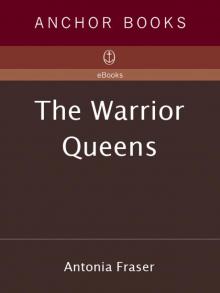 Warrior Queens
Warrior Queens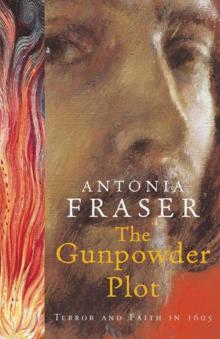 The Gunpowder Plot
The Gunpowder Plot Cromwell
Cromwell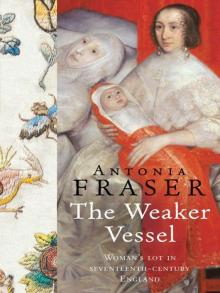 The Weaker Vessel: Women's Lot in Seventeenth-Century England
The Weaker Vessel: Women's Lot in Seventeenth-Century England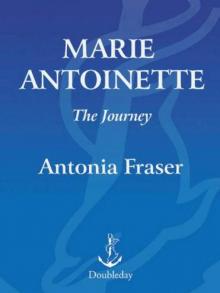 Marie Antoinette: The Journey
Marie Antoinette: The Journey Oxford Blood
Oxford Blood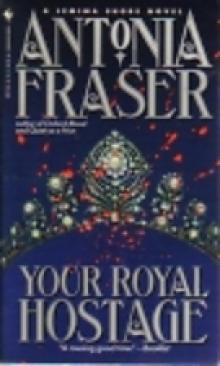 Your Royal Hostage
Your Royal Hostage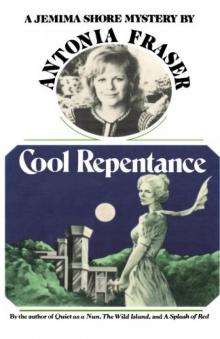 Cool Repentance
Cool Repentance Mary Queen of Scots
Mary Queen of Scots Political Death
Political Death Royal Charles: Charles II and the Restoration
Royal Charles: Charles II and the Restoration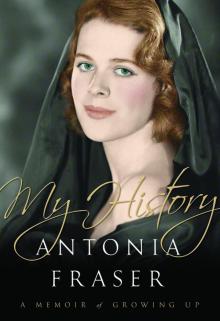 My History: A Memoir of Growing Up
My History: A Memoir of Growing Up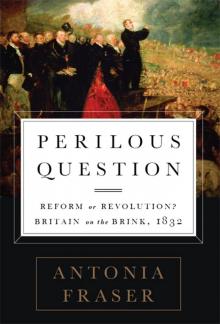 Perilous Question: Reform or Revolution? Britain on the Brink, 1832
Perilous Question: Reform or Revolution? Britain on the Brink, 1832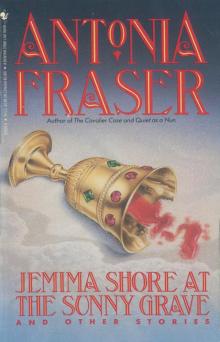 Jemima Shore at the Sunny Grave
Jemima Shore at the Sunny Grave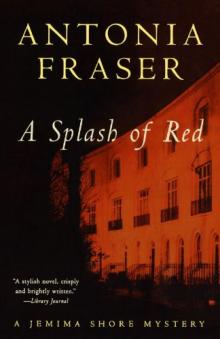 A Splash of Red
A Splash of Red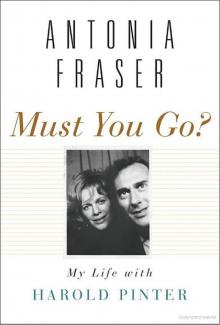 Must You Go?: My Life With Harold Pinter
Must You Go?: My Life With Harold Pinter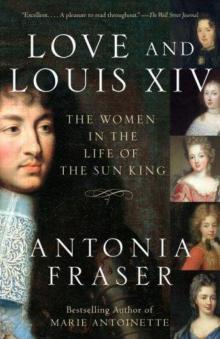 Love and Louis XIV: The Women in the Life of the Sun King
Love and Louis XIV: The Women in the Life of the Sun King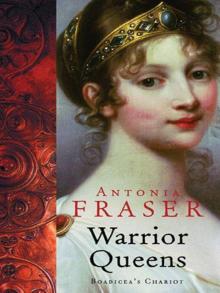 The Warrior Queens
The Warrior Queens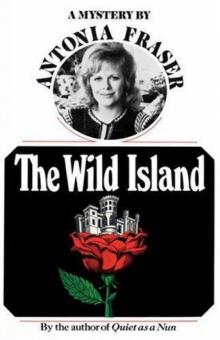 The Wild Island
The Wild Island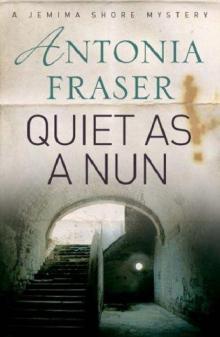 Quiet as a Nun
Quiet as a Nun Perilous Question
Perilous Question Cromwell, the Lord Protector
Cromwell, the Lord Protector Gunpowder Plots
Gunpowder Plots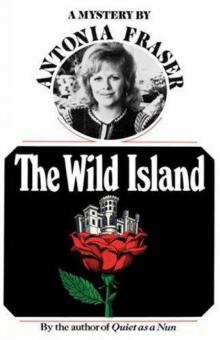 The Wild Island - Jemima Shore 02
The Wild Island - Jemima Shore 02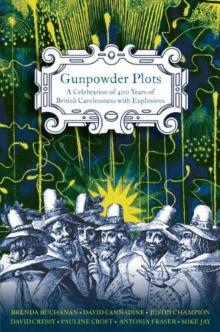 Gunpowder Plots: A Celebration of 400 Years of Bonfire Night
Gunpowder Plots: A Celebration of 400 Years of Bonfire Night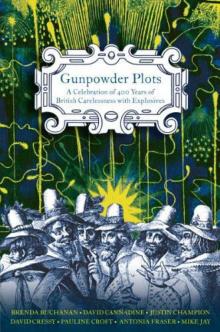 Gunpowder Plots_A Celebration of 400 Years of Bonfire Night
Gunpowder Plots_A Celebration of 400 Years of Bonfire Night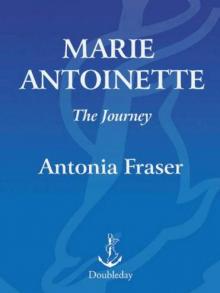 Marie Antoinette
Marie Antoinette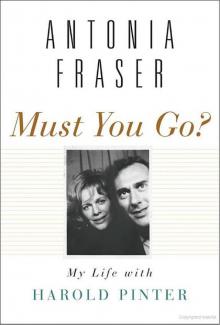 Must You Go?
Must You Go?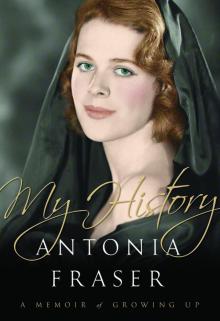 My History
My History